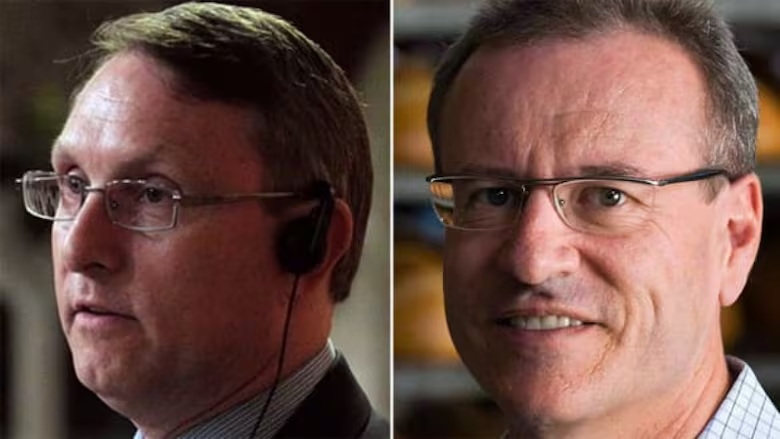Stakes high in Etobicoke Centre Supreme Court hearing
Justices will rule on decision to toss out election result in Toronto riding

The stakes are enormous for virtually every participant in today's Supreme Court of Canada appeal of the overturning of the 2011 federal election result in the riding of Etobicoke Centre.
The top court hearing will determine whether an Ontario Superior Court judge was right to toss out the election result in the Toronto riding and force a byelection.
Two of the interveners in the case beginning Tuesday, the chief electoral officers for B.C. and Alberta, have filed submissions raising concerns that the judge may have set the threshold too low when he threw out 79 ballots due to voting "irregularities," more than enough to outweigh the 26-ballot winning margin.
Keith Archer, B.C.'s chief electoral officer, argues in his submission that this case will affect how B.C.'s next election will be conducted.
But neither of the two electoral officers gives reasons why specific ballots in the Etobicoke Centre election should or shouldn't be allowed to stand.
The Canadian Civil Liberties Association, also an intervener, expresses a wish that voters not be disenfranchised, as the electoral officers do, but emphatically states that credible evidence of who the voter is must occur on the date of the election, not later in a court case.
For Elections Canada, its very reputation is in question.
The Etobicoke Centre case was not about voter fraud or voter suppression, but clerical errors, both minor and major, by Elections Canada staff. Perhaps that's why Elections Canada — self-described as a neutral body and observer in the appeal — nonetheless has filed new evidence for the Supreme Court to consider.
Missing voter certificates key part of case
Last week and more than a year after the election, Elections Canada presented its attempts to find 44 of the voters whose ballots were discarded by the judge because their voter registration certificates couldn't be found.
Registration certificates are filled out when voters show up who are not on the voters list, and contain the names, addresses and signed affirmation that the voter is of age and a Canadian citizen.
Elections Canada says it has found the 44 voters’ names, or names that are similar, on the National Register of Electors, a massive 24-million permanent voters' list that is proof enough, for electoral purposes, of Canadian citizenship. What isn’t addressed in Elections Canada's filing is that half of the 44 people didn't live in the riding of Etobicoke Centre when the writ was dropped in March 2011.
For Conservative MP Ted Opitz, who has represented Etobicoke Centre for over a year, his job is on the line. He's a first-time MP, a backbencher, a hard-working committee member who says he'll run in a byelection if he loses the appeal. But he won by a squeaker last time, and the political landscape is very different, with two new party leaders on the scene and a drop in the polls for the Conservatives.
As for former Liberal MP Borys Wrzesnewskyj, he said people rated his chances at 10 per cent when he started his case last June, and his own party didn't have the stomach or the pocketbook for a fight, so he's the only player to pay for the case on his own, at great cost.
And although Wrzesnewskyj won the riding three times before, Etobicoke Centre split almost evenly between Tories and Liberals last time, and it won't be an easy win, if he even gets the chance to run again in a byelection.
The Supreme Court will likely make its decision quickly since by law, it has to expedite the case. If the court rules this summer, there could be a byelection in Etobicoke Centre early in the new year, or sooner.